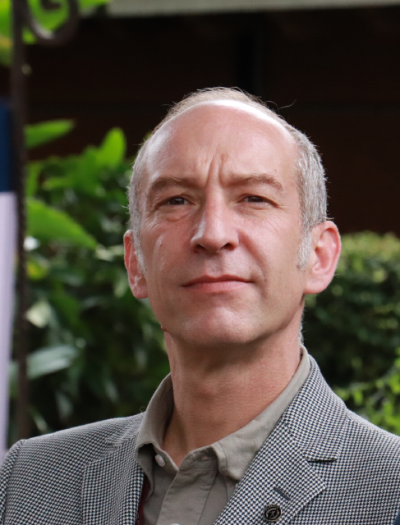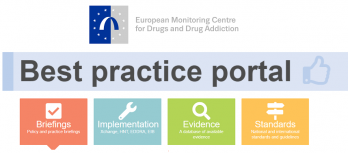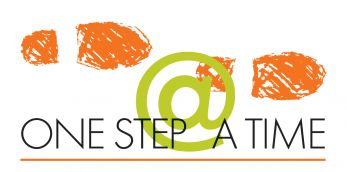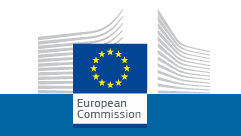"International and bi-regional cooperation between CELAC and the EU has promoted a change in the paradigm of drug policy, focusing on the individual rather than the substance"
ReturnPublished on 27/01/20
Dr. Gady Zabicky is a surgeon, with a specialty in psychiatry and addictology. He has a Master's degree in Medical Sciences and a Postgraduate degree in "Marijuana and Health" from the National Autonomous University of Mexico (UNAM) and the "Ramón de la Fuente Muñiz" National Institute of Psychiatry, where he founded the Substance-Related Research Clinic, which he directed until 2006. He dedicated himself to the study of the genetics of addiction and the management of methadone maintenance systems at Rockefeller University in New York and was a researcher at the "Adelson" methadone maintenance Clinic in Tel-Aviv, Israel.
He was a member of the panel of the The Lancet special publication on Human Immunodeficiency Virus (HIV) and psychoactive substances; he has participated and written dozens of articles and books, is a consultant and invited specialist in various media and has given more than 250 lectures nationally and internationally on the subject of addictions.
Dr. Zabicky was appointed National Commissioner against Addictions on 16 July 2019, by Lic. Andrés Manuel López Obrador, President of Mexico.

- The Mexican government has called on countries, organizations, and regional programs to participate in a series of "Dialogues on the Implementation of the UNGASS 2016 Commitments" in 2017, with the interest of continuing to support a change of paradigm in drug policy, which the new government has reiterated. What is the balance sheet of Mexico of the road traveled in the last four years?
Traditionally and attending the situation we are experiencing in the country on the subject of drugs, Mexico has been committed to promoting initiatives to counteract the world drug problem, from all spheres, which is why every year it submits to the consideration of the United Nations General Assembly the Resolution "International cooperation to address and counter the world drug problem". Similarly, Mexico promoted the initiative, together with Colombia and Guatemala, of holding a Special Session of the United Nations General Assembly on the World Drug Problem (2016), among other initiatives.
Having said that, and derived from the dialogues "Towards a New International Drug Strategy: Implementation of the UNGASS 2016 Recommendations," organized by the Mexican Ministry of Foreign Affairs, a matrix was developed to follow up on the implementation of the UNGASS recommendations. This matrix reflects the concrete progress made by the Government of Mexico in implementing its international commitments, as well as setting short, medium, and long-term objectives to achieve a comprehensive and balanced drug policy.
Following up on the recommendations of the above-mentioned dialogues, the government of President Andrés Manuel López Obrador, particularly the Ministry of Health, is in the process of restructuring and therefore there will be a reform in the National Health System that responds to the needs of the population. There is also a broad debate in the legislative branch to achieve the regulation of cannabis for medical and recreational purposes, all in order to safeguard the health and well-being of the people.
Similarly, in May 2019, the President of the Republic presented the National Strategy for the Prevention of Addictions "Together for Peace", a strategy never before seen that aims to impact on the biopsychosocial determinants that prevent and reduce the use of psychoactive substances in children and youth for the construction of peace, with a public health approach, and within a framework of human rights protection. The Strategy is based on elements of strategic planning and implementation, with a territorialization approach, involving private institutions, civil society organizations and government entities at all three levels (federal, state and municipal).
"Together for Peace" has become a national reference in the prevention of addictions, which is structured in three phases: let's listen; let's dialogue; and let's take care.
In this sense, the balance is positive, particularly with the commitment of the current government and CONADIC to continue promoting comprehensive actions with a greater scope.
- As the new National Commissioner of CONADIC, what are the main lines of work in which you want to make progress and the main challenges for the future - considering, among other issues, some important points of debate such as what concerns to the regularization of the use of marijuana or the fight against organized crime?
One of the main objectives of the policy dictated by the President of Mexico is to make effective the right to prevention and comprehensive care for the consumption of psychoactive substances for the entire population, especially children and adolescents; likewise, to integrate a community model, with a focus on Primary Comprehensive Health Care, which emphasizes not only care for addictions, but also mental health, with an intercultural perspective and respect for human rights.
For this reason, we have decided to give a decisive impetus to the National Strategy for the Prevention of Addictions "Together for Peace", since we are sure that with the combined efforts we will be able to reach the population that already consumes and prevent consumption among children and adolescents.
As I have said, a new structure is being set up, so CONADIC will be merged with the Psychiatric Care Services and the National Council on Mental Health to create a single commission that will provide comprehensive care for mental health and addiction problems, which means that we will have to strengthen and maximize our human, material and financial resources to provide the population with comprehensive care, which will be required:
- To have comprehensive programs and strategies that respond to the new demands of consumption
- Modify indicators for proper monitoring
- Strengthening residential treatment programs with new generation harm reduction and psychotherapy strategies
- To strengthen the standardization of the professionalization of the operational staff that provides treatment in the primary care centers in addictions and residential
With regard to the challenges, I believe that one of them consists of strengthening prevention with practices based on scientific evidence, modernizing the current regulations as per prevention and comprehensive care services and strengthening the legal frameworks in the area of alcohol, tobacco, cannabis and other drugs. In this regard, the Supreme Court of Justice of the Nation determined in 2018 the unconstitutionality of the prohibition of the use of cannabis and THC for recreational purposes. In this regard, CONADIC has issued several positions in favor of effective regulation of cannabis, which protects the health of children and adolescents
- COPOLAD has stressed the importance of inter-institutional cooperation and collaboration at the regional and bi-regional level in order to face these challenges. What is Mexico's vision on these issues and what examples of best practices can you point to according to your experience - and weaknesses detected?
I am convinced that cooperation and teamwork are key to better and greater results. Therefore, from CONADIC we are taking up again international, regional and bi-regional cooperation, as one of the priority axes of the Commission's actions, privileging the exchange of experiences and technical assistance in Drug Demand Reduction (DDR).
In this regard, efforts have been directed towards the main axes of drug demand reduction, such as: prevention, timely detection, counseling and brief interventions, treatment and social reintegration. As part of good practice, Mexico has developed standards of prevention based on the best available scientific evidence, so that public and private institutions and civil society organizations have a solid foundation for the development of preventive programmes and interventions. However, one of the main areas of opportunity is the multiplicity of actors that implement this type of intervention. In this context, it will be a long-term effort to adhere to the standards developed by the institutions.
Likewise, within the national territory, the coordination and linkage with key actors within the public, social and private sectors has been a fundamental strategy to have allies who are capable of bringing to all possible communities, information and useful strategies for the promotion of healthy lifestyles, as well as for the timely detection and referral of people who may present some risk of problematic use to our national network of mental health and addiction care.
A successful experience is the training program of Voluntary Promoters that is based on a model of action within the community environment and arises as a response to the need to have key people (within companies, institutions, schools, churches, clubs, social organizations, etc.) who are trained to provide clear, updated, truthful, sufficient and simple information on the problematic use of psychoactive substances and their consequences, as well as to carry out the timely detection of cases at risk in order to provide guidance on early care through the Outpatient and Residential Treatment Centres that are part of the National Network of Care for the Use of Psychoactive Substances.
- COPOLAD has clearly committed itself to supporting decision-making based on scientific evidence. What institutions and tools in Mexico ensuring this is respected? Are there any plans for the future to strengthen the Mexican Drug Observatory and how can COPOLAD support them in this task?
The National Commission against Addictions, in coordination with the National Institute of Psychiatry, the National Institute of Public Health and university centres, promotes national and regional studies to strengthen scientific evidence related to drug use, especially in vulnerable populations.
Since 2018, the actions of the Mexican Drug Observatory (OMD) have been strengthened. For this purpose, COPOLAD's support has been crucial, since through the meetings of national observatories, technical exchange has been fostered with other countries and also thanks to their support, the first Report on the Drug Situation in Mexico was developed and presented in July of this year.
In 2020, the Observatory faces new challenges, such as promoting a comprehensive vision between the approaches on regards drug supply and demand reduction, incorporating reports on mental health, conducting studies with low-prevalence drug-using populations, conducting a survey with university students and strengthening its human and technological resources to strengthen reports on the use of psychoactive substances at the national, state and municipal levels. In this sense, it would be very promising if COPOLAD would continue to support us through technical capacity building actions, through meetings and training, updating and information exchange activities.
- We await with great interest the advances in the production of a new National Drug Policy Program that will continue the current one for the period 2015-2018. To what extent has your presence in the COPOLAD working groups dealing with the elaboration of national drug reports contributed to the achievement of a new Plan?
The new national drug programme, the National Programme for Comprehensive and Differentiated Drug Policies 2019-2024, is the result of a coordination effort between all the institutions involved in the issue, led by the Office of the Attorney-General of the Republic, the Secretariat of Public Safety and Protection and CONADIC, which seeks to address the components of supply reduction, demand reduction, control measures, institutional strengthening and international cooperation, individual-centered and human rights-focused, guaranteeing the gender perspective and the multicultural component.
COPOLAD has made a significant contribution to the achievement of the new national programme, since the first report on the drug situation in Mexico was one of the starting points for the construction of a new comprehensive and differentiated policy, with a public health approach and focus, which can be adapted to the development plans of communities and territories. Without a doubt, we hope to continue to participate in these actions, which are so beneficial to our country.
- CONADIC has considered it of interest to provide virtual training in areas addressed in two COPOLAD courses: Public Health approach to drugs policies and Comprehensive approach to the prevention and reduction of the adverse consequences of drug use in populations in situation of high vulnerability: a public health strategy. What is the added value of virtual training, for professionals in your country?
We thank COPOLAD for their willingness and support to accompany CONADIC in the process of training and professionalization of the staff, which will result in higher quality service to users.
The training in a virtual way has facilitated that the information reaches the 32 State Commissions against Addictions and favors the homogenization of the knowledge in the matter. Additionally, it allows for monitoring the progress of learning through these means. The two courses are relevant since the first one will facilitate, through the State Commissions against Addictions, the adoption of the Public Health approach and policies in whose formulation scientific evidence and efficiency criteria are taken into account, incorporating the appropriate technical evaluation. The second will contribute to the care of people with problematic drug use, with emphasis on groups that are in a situation of vulnerability from the health and social point of view. Without a doubt, these courses will allow for an in-depth study of the theoretical and methodological bases of interventions based on scientific evidence, which will strengthen decision-making and the quality of care services.
- Mexico has participated in the process of validation and adoption of the basic and advanced criteria of quality and evidence base for treatment and prevention programs, agreed upon in the framework of COPOLAD. What importance does your country give to this process and how can it strengthen responses based on public health and respect for human rights in your country?
We believe that Mexico's participation in these processes is of the utmost importance to ensure that the objectives of our programs are consistent with the needs of the beneficiaries, the country's needs, global priorities, national and international public policies, and have quality criteria endorsed worldwide.
The prevention and treatment of psychoactive substance use are among the most cost-effective policies to deal with the problem of addiction. For this reason, it is necessary to apply resources in models with proven effectiveness and efficiency for the formation of healthy and strong individuals who are resilient and, therefore, resistant to the pressure to use drugs. Prevention and treatment must be aimed at identifying, avoiding, regulating or eliminating the consumption of tobacco, alcohol and other drugs as a health risk, as well as its physical, psychological, economic, family and social consequences.
For Mexico, it is essential to consolidate actions for the protection, promotion of health, prevention and treatment of the consumption of psychoactive substances, through effective inter-institutional links and coordination with the three levels of government and with the different sectors; aimed mainly at populations: children, adolescents and young people, in communities at risk, promoting civic co-responsibility; in accordance with human rights.
- Mexico participates with a prominent presence in COPOLAD's activities in the field of Alternative Development, hosting one of the workshops on value chains in its capital in 2017. What is the DA model for Mexico, and how have COPOLAD's dialogue and training forums contributed to this vision?
While the issue of alternative development is led by the Office of the Attorney General of the Republic, I can comment that within the framework of the National Program for Comprehensive and Differentiated Drug Policies 2019-2024, comprehensive and sustainable development has been established as one of the guiding principles. The strategic vision in this area is the implementation of comprehensive and sustainable development programs in communities susceptible to the cultivation of plants for the production of illicit drugs, the promotion of actions for social development in urban environments where drugs are produced or trafficked, and the protection of the sustainable environment.
- It is worth noting the importance that Mexico attaches to alternative sentences to prison in order to tackle prison overcrowding, especially as it affects vulnerable populations. What added value have the conferences promoted by European cooperation programmes provided, and what do you consider to be the main lines of work to be pursued in order to improve the situation affecting CELAC and EU countries? What do you consider to be the main lines of work to be pursued in order to improve the situation affecting CELAC countries and the EU?
Without doubt, the added value of the conferences lies in the possibility of shortening the distances and learning about the actions being carried out in other countries with regard to alternatives to prosecution and imprisonment; in the framework of these conferences, we have had the opportunity not only to learn but also to exchange valuable information with those countries that already have experience in this area. Mexico is currently in the process of consolidating a national model of therapeutic justice for people who use psychoactive substances, and all the knowledge and international experience acquired within this cooperation framework helped in the design of specific mechanisms which, after being adapted to the national context, were set out in that document.
When reviewing the basis of successful alternatives to imprisonment programmes, inter-institutional coordination becomes crucial; That is why we believe that this area should be further developed since it is not only a matter of developing effective coordination between institutions belonging to the same authority, nor of developing efficient communication between professionals in the various knowledge sciences, but also of building effective and permanent collaboration with legislators, who should be included in the design of these mechanisms in order to have efficient public policies that take into account all areas of application and that are permanent over time, especially in the task to provide adequate proportionality of sentences.
- Given that there are problems like this one, which affect the whole region, even at a global level, what is Mexico's assessment of the international and bi-regional CELAC-EU cooperation developed so far in the framework of COPOLAD II?
The balance is definitely positive; this particular problem requires shared responsibility, with attention from a comprehensive approach in order to balance demand reduction and supply reduction. International and bi-regional cooperation between CELAC and the EU has promoted a change in the paradigm of drug policy, focusing on the individual rather than the substance, taking the consumption of psychoactive substances from the health perspective and not criminalizing consumption; these postulates are the basis for the implementation of alternatives to prosecution and imprisonment. For this reason, it is essential to maintain the CELAC-EU international cooperation line, since the positive results obtained as a result of this cooperation demonstrate this.
The European Commission is preparing a third phase of this programme, therefore COPOLAD will be back at the beginning of 2021.









